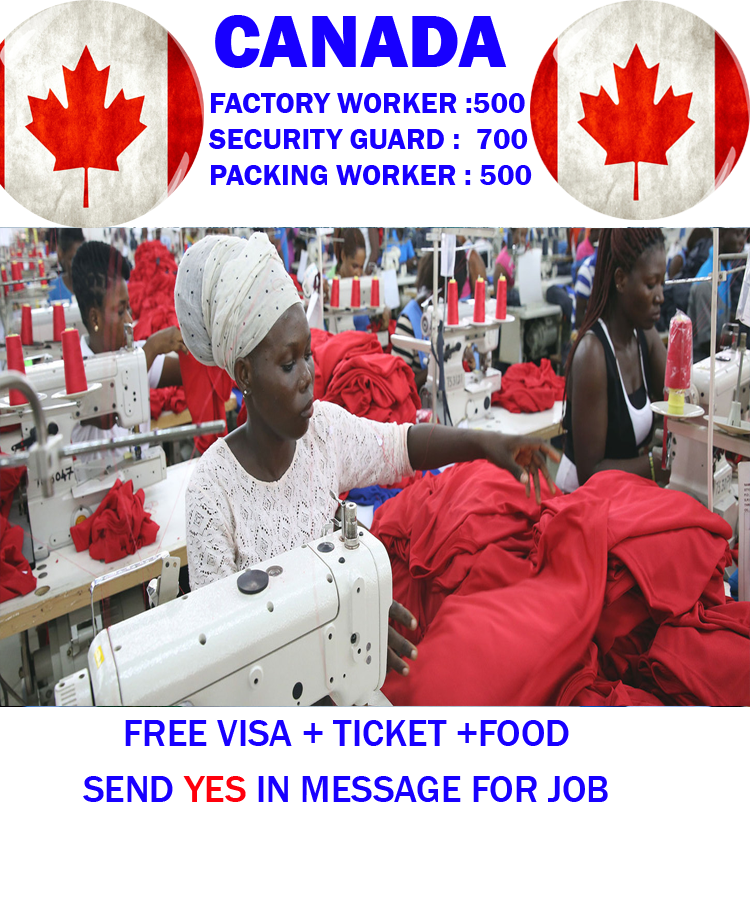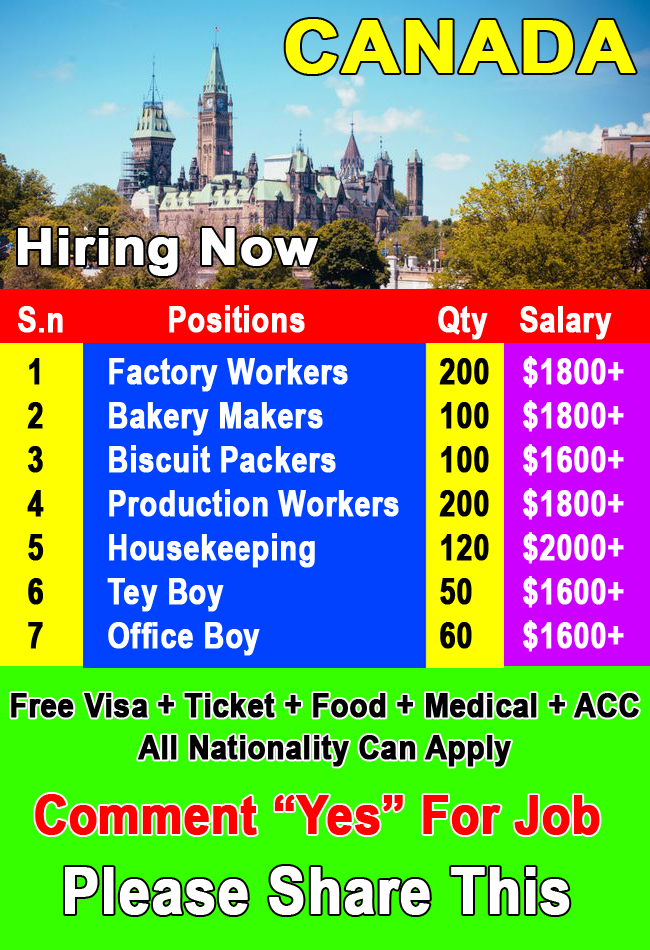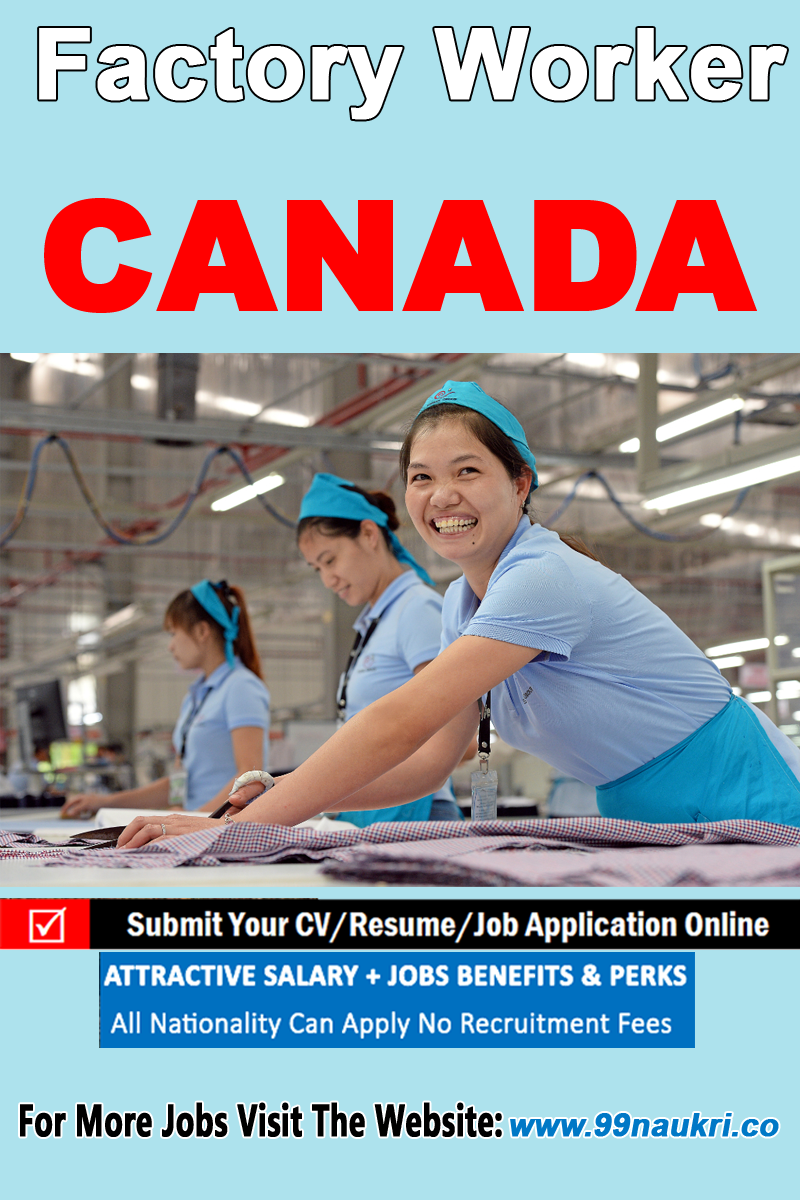Temporary Work Visa in Canada

Temporary Work Visa in Canada
Temporary Work Visa in Canada, Canada is one of the second largest Countries by surface relatively small in terms of population.
A Canadian work permit is permission to take a job within Canada if you are from a foreign country.
There are many Companies affected by the shortage of labor due to the small population in the Country. Which adversely affects their productivity and profit.

Hence the government gives opportunities to foreigners and hires them for the job with visas regulated by the Immigration Refugees Citizenship Canada (IRCC).
Introduction
Getting a short-term work visa is a critical action for people that desire to work in Canada for a minimal duration. Canada supplies various work visa programs to deal with the varied needs of temporary international employees. This write-up will certainly direct you via the process of obtaining a momentary work visa in Canada, highlighting the needs, application treatments, and essential factors to consider.
Temporary Work Visa in Canada
Foreigners who wish to work in Canada should apply for a visa under the Temporary Foreign Worker Program (TFWP). The different types of job visas, the procedure of applying, and other important information are discussed below.
Visa Types: Temporary Work Visa in Canada
Job seekers should be aware that Canada has several visa programs that use open work permits. Four different categories of visas are available which depends on the foreign workers applying for
Obs in Canada with Work permit: Temporary Work Visa in Canada
Shortage of the population in Canada ensures us that Canada is seeking foreign employees as their economy is highly affecting due to lack of employees within the Country.
As there is a lack of population that employers do not recruit foreign workers for job profiles, for which Canadian citizens and residents are looking for jobs.
Job offer in Canada for foreigners
Jobs in Canada for foreigners
Hiring foreign workers: Temporary Work Visa in Canada
The Canadian employer who wishes to hire foreign workers should take permission from the government agencies.
This is the first done by applying for the Labour Market Impact Assessment (LMIA). After getting permission, the employer can advertise a job opening and can hire foreign workers from different countries. The employer can make an offer for suitable candidates from a different country. In many cases, there are chances to get a working permit without LMIA.
There are many schemes like the International skilled worker program which allows foreign workers to work in Canada for some time. Applying for a work permit mobility Program,Immigration.ca and
Foreign workers need to get a job offer from a Canadian employer before they apply.
After getting the job offer, the worker should apply for the visa and work permit to a visa office outside Canada.
All the workers should go for the different tests like a medical exam to get a working permit and visa International youth exchange program participants, seasonal agricultural workers, and live-in caregivers should also apply for a work permit at the visa office. What is the cost of a Canadian work permit?
There are some expectations rules too, especially for workers from the United States.
Application process
Firstly, foreign workers should get the offer for the job and he/she should confirm whether the working permit should be required or not.
They should check whether they are eligible or not for the vacancy.
The worker can apply for a working permit using paper or online. If required the employees should request for the employer a copy of LMIA. Which he/ she has obtained.
Foreign employers should collect all the necessary documents and forms to get the work permit. After that employers should read the instruction carefully, the form should be submitted to the visa office. Temporary Work Visa in Canada
Eligibility Criteria for a Temporary Work Visa in Canada
To be eligible for a temporary work visa in Canada, applicants have to meet specific criteria. The standard needs consist of:
- A valid task offer from a Canadian company.
- Evidence of qualifications or job experience appropriate to the job.
- The ability to show that the work will be temporary.
- Evidence of adequate funds to sustain oneself as well as any kind of accompanying family members throughout the stay.
- A tidy criminal record and also health.
Sorts Of Temporary Work Visa in Canada
Canada supplies numerous kinds of short-lived work visas, each catering to specific scenarios and groups of employees. One of the most common kinds includes:
- Temporary Foreign Employee Program (TFWP): This program enables companies to employ international employees for placements that can not be filled by Canadian people or long-term residents.
- International Mobility Program (BRAT): Under this program, particular groups of workers, such as intra-company transferees, professionals under international agreements, and individuals in young people exchange programs, can obtain work authorizations without a Labor Market Impact Assessment (LMIA).
- Seasonal Agricultural Worker Program (SAWP): This program makes it possible for foreign agricultural laborers to work in Canada for a given duration to fulfill the seasonal labor demands of the agricultural field.
- Working Vacation Program: This program permits young people from partner nations to work and also take a trip in Canada for approximately 12 or 24 months.

Documents Required for a Temporary Work Visa in Canada Application
When making an application for a short-lived job visa in Canada, you will certainly need to gather and also send a number of files to sustain your application. These files may vary based on your particular conditions and the job visa program you are applying with. Below are some generally required files:
- Passport: A legitimate passport is essential for travel and also recognition functions. Ensure that your passport stands throughout of your designated remain in Canada.
- Job Offer Letter: This letter ought to be released by your Canadian employer as well as include details such as your position, job summary, wage, period of employment, and also any other appropriate terms.
- Educational Credentials: Provide files that confirm your academic certifications, such as degrees, diplomas, or certifications. These records ought to be from identified educational institutions.
- Job Experience Letters: If appropriate, consist of letters from previous employers that validate your job experience and job obligations. These letters must get on company letterhead and also consist of call information for confirmation.
- Language Proficiency: Depending upon the visa program, you may need to demonstrate your proficiency in English or French. Include language examination results, such as IELTS or CELPIP scores, to confirm your language abilities.
- Evidence of Funds: Show proof that you have enough funds to sustain yourself and also any coming with member of the family during your stay in Canada. This might consist of financial institution declarations, proof of work, or a letter of financial backing.
- LMIA (Labor Market Effect Evaluation): If your visa program requires an LMIA, your employer needs to give the authorized LMIA file gotten from Employment and also Social Growth Canada (ESDC).
- Biometric Details: Some candidates are needed to supply biometric details, including finger prints and a photograph, at an assigned application center. Check the official IRCC site to establish if this demand relates to you.
- Medical Checkup: Depending on your country of home as well as the length of your intended remain, you may require to undertake a medical checkup to ensure you meet the health and wellness requirements for access right into Canada.
- Authorities Clearance Certificate: Offer an authorities clearance certificate or a certification of great conduct from the relevant authorities in the nations where you have stayed for a specific duration. This is to show your good character as well as to ensure you do not present a security risk.
- Pictures: Include current passport-sized photographs that meet the requirements given by IRCC. The photos must clearly reveal your face and meet the specific size and also style needs.
Temporary Work Visa vs. Permanent Residency: Understanding the Difference
When taking into consideration working in Canada, it’s important to recognize the distinction in between a momentary work visa and permanent residency. Both options offer different pathways and also advantages. Below’s a contrast to assist you make a notified choice:
Temporary Work Visa:
A temporary work visa enables international individuals to operate in Canada for a details duration. Right here are the bottom lines to take into consideration:
- Period: A short-lived job visa is valid for a minimal time, typically representing the size of the work offer or the certain program requirements.
- Function: The key function of a temporary job visa is to meet short-term labor market requirements that can not be fulfilled by Canadian people or irreversible locals.
- Job-Specific: The visa is connected to a certain job offer from a Canadian employer. You have to work for the company pointed out in the visa and also in the job placement defined.
- Revival: In some cases, you might have the alternative to renew your work visa or apply for an expansion. However, this undergoes program guidelines, labor market conditions, as well as eligibility criteria.
- Dependents: Depending upon the visa program, you may be permitted to bring your immediate family members as going along with dependents. They may be eligible for open job permits or study permits.
- Social Conveniences: While on a momentary job visa, you may have access to specific social benefits, such as medical care, relying on the province or territory of employment.
Permanent Residency:
Permanent residency supplies long-lasting residency and also migration advantages in Canada. Below’s what you require to understand:
- Uncertain Remain: Irreversible residency grants the right to live as well as operate in Canada forever. It is not linked to a particular task or employer.
- Citizenship Pathway: Permanent homeowners can eventually make an application for Canadian citizenship, which offers extra rights as well as advantages, consisting of the capability to vote and also hold a Canadian ticket.
- Job Adaptability: Irreversible homeowners have better flexibility in the job market. They are not limited to certain companies or job settings, enabling more job opportunities.
- Social Perks: Irreversible residents have access to a large range of social advantages, consisting of health care protection, social security benefits, and educational subsidies.
- Sponsorship: Irreversible locals can sponsor their eligible family members for irreversible residency, helping them join and stay in Canada.
- Wheelchair: Long-term residency enables less complicated wheelchairs within Canada and also between provinces/territories, giving more versatility in regards to work and way of life options.
It’s important to keep in mind that obtaining permanent residency generally involves a lengthier procedure, including meeting specific qualification criteria, such as work experience, language proficiency, as well as education, and learning.
In summary, a short-lived work visa uses a momentary remedy for individuals that intend to work in Canada for a specific period. Long-term residency, on the other hand, gives lasting residency, higher task versatility, and also a pathway to Canadian citizenship. Consider your goals, lasting strategies, and qualification needs to identify one of the most ideal alternatives for your circumstance.
Frequently Asked Questions (FAQs)
Can I apply for a temporary work visa if I don’t have a job offer in Canada?
Yes, sometimes, you might be qualified to apply for a short-term job visa without a work deal. For example, particular programs like the Operating Holiday Program permit individuals to work and also take a trip in Canada for a minimal period without a particular job deal. However, most short-lived work visas call for a legitimate work offer from a Canadian employer.
How long does it take to process a temporary work visa application?
The processing time for a Temporary Work Visa in Canada application can vary depending upon various factors, consisting of the visa program, the volume of applications, and the completeness of the application. On average, processing times can vary from a few weeks to a couple of months. It is very important to examine the official IRCC site for the most updated handling times specific to your visa program and also nation of home.
Can I extend my temporary work visa in Canada?
Yes, in specific situations, you might be able to extend your short-term work visa in Canada. The eligibility for extension will depend upon variables such as the visa program, your existing status, the task market, and also the employer’s assistance. It’s vital to check the certain demands as well as guidelines for expansions supplied by Migration, Refugees and Citizenship Canada (IRCC).
Do I need to pay taxes in Canada if I hold a temporary work visa?
Yes, as a temporary worker in Canada, you are usually required to pay tax obligations on the earnings you earn. The Canadian tax system consists of both government and also provincial tax obligations, as well as your employer will deduct tax obligations from your salary. It’s recommended to get in touch with a tax obligation expert or refer to the Canada Profits Firm (CRA) website for detailed info on your tax responsibilities.
Can my family join me in Canada on a temporary work visa?
Depending on the visa program and certain situations, your prompt family members, such as your partner or common-law companion, may be eligible to accompany you to Canada. They may obtain open work allows or research licenses, enabling them to function or examine throughout your remain. It’s important to examine the requirements and eligibility criteria for members of the family accompanying you on a temporary work visa.





